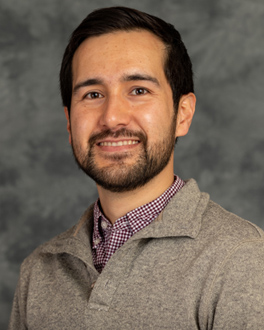
Joseph Gardella, PhD, is a mixed-methods community and applied social psychologist whose research focuses on better understanding individual and systemic causes of positive youth development in school settings, particularly with historically marginalized populations. His work focuses on developing, implementing and evaluating prevention and intervention programming and informing policy efforts, especially building structural interventions that increase opportunities to grow relationships and coach targeted skills. Born in Japan and moving to the U.S. at a young age, Dr. Gardella grew up in urban San Diego. Initially pursuing medicine at the University of Rochester on a scholarship, he later switched to psychology and earned his Ph.D. in Community Research and Action from Vanderbilt University. During his time at Drexel University, Dr. Gardella served as a postdoctoral fellow in the Juvenile Research and Reform Lab within the Department of Psychology.
What event or experiences led you to pursue being a postdoc at the time?
I worked with the Metta Center for Nonviolence, the Gandhi Institute for Nonviolence, Arun Gandhi, and many others who have well-thought-out approaches to social, community, and civil change. This opportunity made me realize I wanted to learn more about how robust system change works, and it led me to receive my degree from Vanderbilt University with a doctorate in Community Research and Action. You can classify me as a community psychologist.
What inspired you to continue as a community psychologist?
Well, I come from a neighborhood growing up where there’s a lot of gun violence, and I didn’t know that we could change that. All I knew is that I wanted to try to help that out as much as I could. So I tried to become an EMT and as I went to school for that, I learned that it was possible to change these things—to change our social environments. A lot of what I learned is that what shapes how people view themselves in relation to the world, tends to happen in schools. At least in the United States, in our society. And I knew that was something that definitely shaped my experience and my peers’ experiences.
We didn’t grow up with this view that we could be active, empowered, and be the agents of change in our communities that made a difference. I just thought that was something that happened to us and not what we could be a part of. A lot of that provided a background context for the kind of career I chose, a degree in community research and action, which is all about “how do we really empower people” so that they can become owners of their lives and bring about their own wellbeing.
What was your previous work focused on? Were there specific goals you kept in mind while advancing your research?
My work was about achieving equity in education, particularly with k-12 students. To accomplish this, I have three general research aims that support an overarching “worldview.” The first is to systematically specify how biased, unfair and oppressive treatment happens in schools. The second is then to systematically specify how to change how that happens, how that treatment happens, how decision-making and broader disciplinary apparatuses are used in schools and change them into processes that connect by healing, empowering and then lead to an enduring post-social behavioral change through collective empowerment. Finally, the third aim is to put all of that theory work into durable interventions that can work even in under-resourced, challenging school settings.
We like to call this the CBPAR (Community Based Participatory Action Research) worldview. What this essentially means is that the work I do is grounded in the real lives of people in the community in ways that include and elevate their voices. The research that I do is designed to have direct implications when it comes to changing communities.
What methods or techniques have you previously used to accomplish your goals?
At Drexel particularly, one method was by placing a focus on changing how police officers interact with children.
I developed a training manual for officers with skill sessions that teach officers how to use different kinds of skills and strategies when they interact with kids in ways that are prevention-oriented and in ways that solve problems before they become actual problems. We worked with over 270 officers around Drexel and the Philadelphia school district. Really, it's about building capacity at the school district so that the school district, even when we leave, can continue to care for their kids better and continue to get better at those types of skills.
Finally, what advice would you have for people in college who are starting off their path as a community psychologist?
I would advise being helpful, either by applying to places to volunteer or to work with and go in with the understanding that you’re going to get turned down a lot. While I was trying to apply to research positions back in undergrad, I think I applied to 32, only heard from three, and only got into 1. Again, it’s really important to try and be helpful and get that experience to be even more helpful. Eventually, you’ll start meeting people on a similar path that will teach you and help you reshape your personal view into understanding yourself and your relationship to the world.
You can’t read that from a book. All of those experiences are going to be personal to you, and all of those mentors you meet along the way will help you develop your skills and form the foundation for the work you’ll be doing in the future. If you don’t have that foundation, it’s going to be difficult working with people from all walks of life who are skeptical of your abilities. And all those skills you learned while trying to be helpful will be needed if you want to work with folks from different communities.